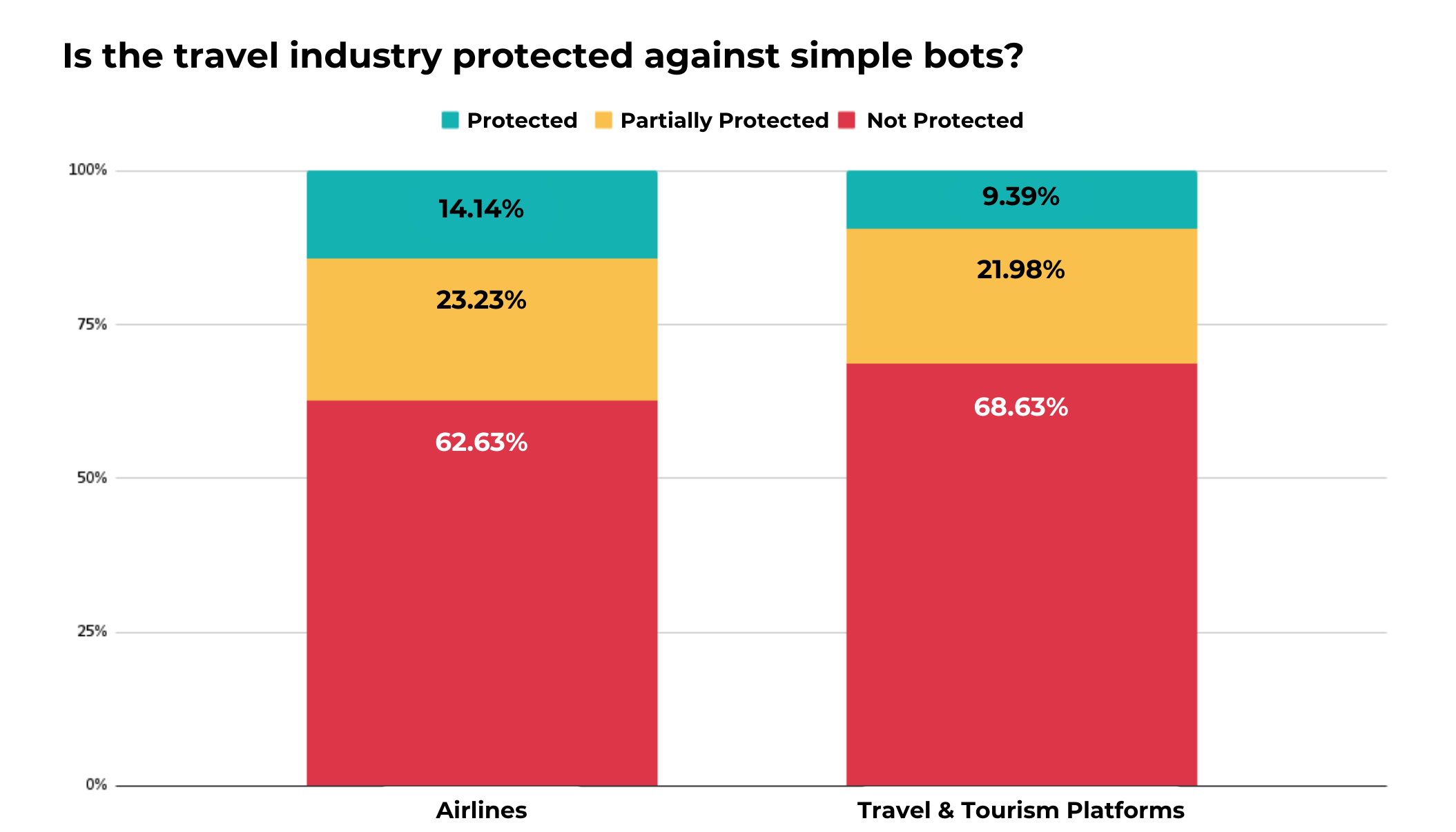
2024-6-15 00:48:45 Author: securityboulevard.com(查看原文) 阅读量:2 收藏
The travel and hospitality industry faces significant financial risks from online fraud and cyber attacks, such as booking fraud, account takeovers, and data breaches. Recent attacks such as the Marriott International data breach and the Carnival Corporation ransomware incident highlight the severity of these threats.
According to the DataDome Bot Security Report 2023, a staggering 91% of travel websites are not protected against simple bot attacks. Businesses in this sector must understand the cost implications of bot-driven cybersecurity threats and the return on investment (ROI) of implementing an online fraud solution.

The Financial Impact of Cyber Threats & Fraud
Cybercriminals can do a lot of damage on their own. Cybercriminals with an arsenal of bots can do even more damage. Understanding the full financial impact of cyber threats involves assessing both direct costs—such as immediate financial losses and expenses—and indirect costs such as long-term effects on customer trust, brand reputation, and market position.
Direct Monetary Losses to Fraud
Payment fraud, booking fraud, and account takeovers can lead to substantial revenue losses. These fraudulent activities cost businesses money and block legitimate customers from making bookings. By preventing booking fraud and unauthorized transactions, businesses can save substantial amounts of money—both directly and indirectly.
Rising Operational Costs
Addressing the aftermath of a cyberattack or remediating fraudulent activity involves significant expenses, including IT recovery efforts, customer support, and potential legal fees. High bot traffic can also cause rising infrastructure costs and strain your systems. Automated cybersecurity solutions reduce the need for manual intervention, freeing up resources and enabling teams to focus on strategic initiatives.
Costly Compliance Fines
Failure to comply with data protection regulations like GDPR can result in hefty fines. For example, the cost of non-compliance with GDPR can reach up to €20 million or 4% of the annual global turnover, whichever is higher. Informing customers about data breaches involves considerable costs, including notification logistics and potential compensation. Having the right security and fraud prevention solutions can save you from paying fines down the road.
Damaged Brand Reputation & Customer Trust
A single security breach can significantly damage a brand’s reputation, leading to a long-term decline in customer trust and loyalty. In addition, the media coverage of cyber incidents can lead to negative publicity, affecting the brand’s image and search results.
Protect Your Bottom Line with the DataDome Platform
With 91% of travel websites not protected against simple bot attacks, the financial stakes are higher than ever. Investing in comprehensive bot protection and fraud prevention tools is essential to safeguarding your business from substantial financial losses and operational disruptions. DataDome is a powerful bot and online fraud mitigation solution that uses multiple layers of machine learning to identify even the most sophisticated attackers, stopping them in real time—before they have a chance to attack your website, mobile app, or API.
Use our ROI Impact Calculator to evaluate the costs of bots and online fraud on your travel website. This tool helps you quantify the financial impact and illustrates the potential savings from implementing real-time bot protection and fraud prevention.
如有侵权请联系:admin#unsafe.sh

